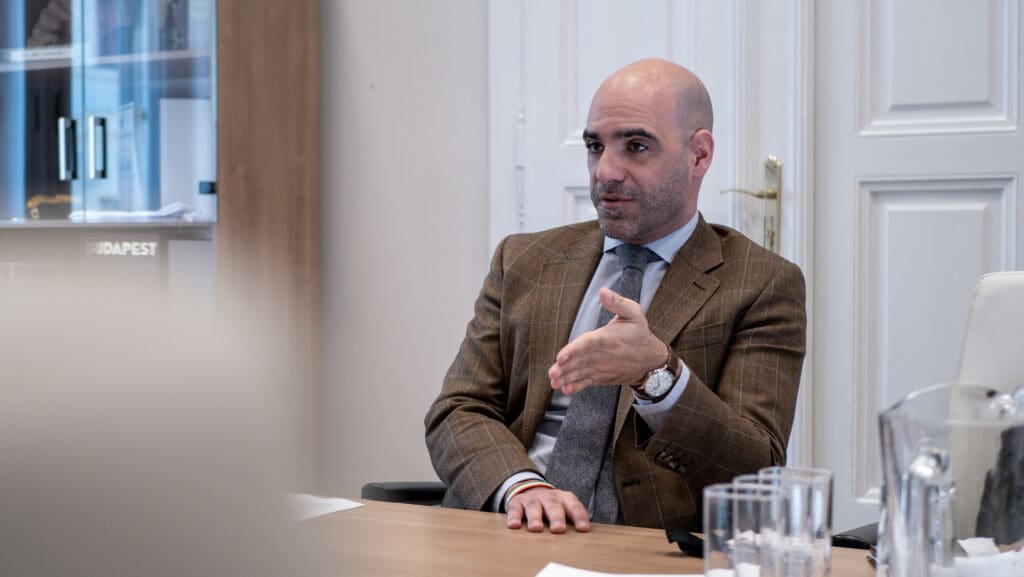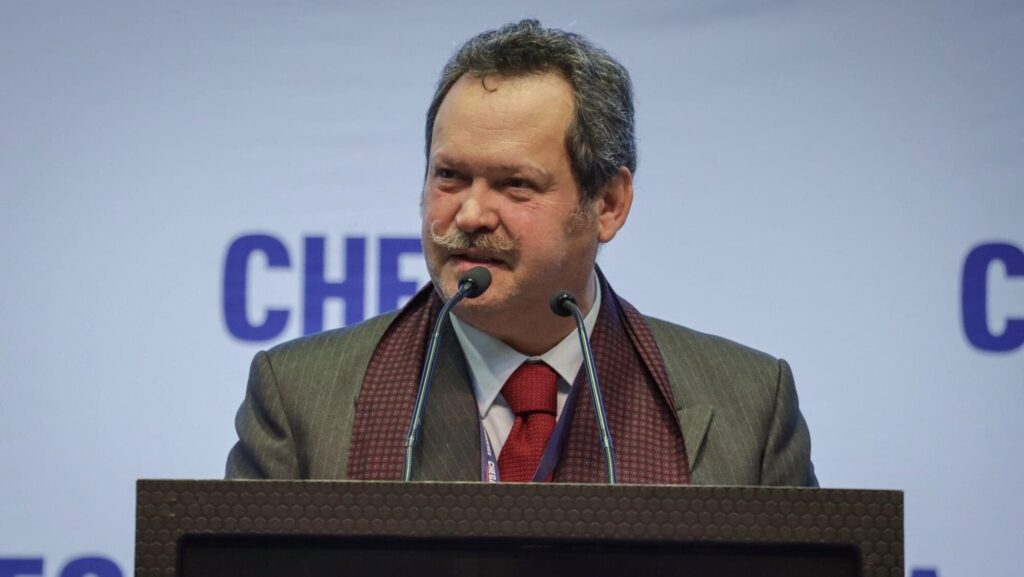
Robert Spencer is the author of numerous articles and books on Islam and Islamic terrorism. The New York Times bestseller has published 28 books, including The Truth About Muhammad: Founder of the World’s Most Intolerant Religion and The Politically Incorrect Guide to Islam (and the Crusades). His latest book, Muhammad: A Critical Biography, was published by Bombardier Books in September. Spencer is the director of Jihad Watch, a programme of the David Horowitz Freedom Center, and has conducted seminars on Islam and jihad for, among other organisations, the FBI, the U.S. Army General Staff, the Joint Terrorism Task Force (JTTF), and the U.S. intelligence community.
What is Jihad Watch?
In his book Seymour: An Introduction, J.D. Salinger has his protagonist give some writing advice: he says you ought to think of the kind of books you want to read, and then write them yourself. I have tried to do that in my books and on Jihad Watch, a website that explains what ‘Jihad’ means and how its actions are inspired by Islamic teachings. It is a place to inform and explain about Jihad. It didn’t exist—so I had to make it. In the last 20 years there hasn’t been a day in which there hasn’t been news to publish.
Tell us about your new work on Muhammad.
It is a different biography of Muhammad than the one I wrote in 2006. This new book goes through the stories in Islamic tradition about Muhammad and compares them to other competing traditions, showing that there are variations on practically everything: his name, when he became a prophet, who the angel that appeared to him was, etc. What the book shows is that the Koran is not a historical account but myths and legends that take different forms in different places and times.
Is it going to be a controversial book?
Of course. I honestly don’t know how anyone can read this book and, if they are rational, still be a Muslim.
You have spent your career arguing that Islam is not just a religion like any other but that it actually has a unique tendency to encourage extremism. Why are so many people unwilling to even consider such arguments?
For two primary reasons. The first is that there has been a concerted campaign for over 20 years to make people think not only that Islam is peaceful but that if you think otherwise, then you are racist, Islamophobic, hateful, and should not be around any decent human being. As a result, people are frightened into thinking that they must believe Islam is peaceful—even against all the evidence—and that they face personal and professional ruin if they do not believe this or if they publicly deny that it is peaceful, wonderful, and a great benefit for the countries of Europe and North America. It is a propaganda campaign aimed at making people feel afraid of speaking up, ashamed of their beliefs, and socially stigmatised if they tell the truth.
The other reason is because the reality is too terrible to consider. There are millions of Muslims in Europe, and the demographic trends lead to a Muslim majority before the end of the century—and the same is going to happen in North America. The citizens, the native populations of Europe and North America, look at these trends and think: ‘We are facing conquest and Islamization, and the brutal subjugation—and ultimate extinction—of native populations, as has happened in North Africa, the Middle East, and elsewhere.’ When people hear such things discussed, it seems too terrible to consider. And, besides, everyone has met Muslims who are good people, so people think these claims must be false; this can’t all really be happening.
The reality is too frightening to face.
A pleasant lie is better than an unpleasant truth.
Yes—but, at the same time, I think people know it. There are even people who assume that all this is already happening and that it’s too late to reverse. There is no way to change the political order because [the current trend] is too strong, so it is inevitable.
During a ‘Pride’ celebration in Madrid, a journalist asked several attendees what they preferred: an Islamic caliphate or a government with the ‘far Right’ (VOX) in power. The answer was in favour of the caliphate. This reflects the enormous ignorance of a large part of the population.
Young people have been lied to all their lives about what Islam is and about its history. In the United States, there was a concerted effort to change the textbooks—and now all you find is a completely ‘pink’ version of what Islam is, one that has nothing to do with history. These textbooks say nothing about the violence of Jihad, or about the subjugation and extermination of native populations. They only have criticisms of Judaism and Christianity, which generates the idea that Islam is somehow superior to our culture—so why not welcome it?
Countries like Qatar spend money in service of this agenda. Is this money buying the silence and complicity of many in the West?
Yes. For example, Qatar has bought American universities and has invested millions of dollars, so the universities have begun to reflect the views that their funders want to spread. And that’s why this propaganda is so successful—because it’s taught in universities, it’s taught in high schools, you hear it in the media, everywhere. You don’t hear dissenting voices because they are silenced by accusations of racism. Politicians are also afraid because if they don’t accept the narrative that Islam is peaceful and wonderful, then they can be branded as Islamophobic racists—and that, of course, will be the end of their political careers.
U.S. universities are a focus of enthusiastic support for groups like Hamas. How has such brainwashing been possible?
The groundwork for this has been laid for decades. The only framework many students have been given for viewing the world is the Marxist vision of ‘oppressor’ and ‘oppressed,’ which they neatly apply to Israel and Palestine. That is the framework they know, whether it is racial, economic, or territorial. Therefore, the supposed oppressor can never be the victim because this does not fit the narrative they see in the world. Within that narrative, the oppressed sometimes strike back brutally—but this is justified by the greater and more enduring (if hidden) brutality of the oppressor. That is why they justify what happened on 7 October.
Is it impossible to change the narrative no matter what Hamas or any other terrorist group does?
The narrative is a social contagion. I think we have had lessons in recent years about how human beings are stampeded into thinking preposterous things because everybody accepts them. It is like a virus that passes from one person to another. There is no rationality behind it. We have examples in history—like the Salem witch trials in the 17th century—where witnesses swore they saw their neighbours with the devil or talking to evil spirits. It was totally preposterous, but it passed from witness to witness like a virus. This is what is happening now in American universities.
However, we must not give in to this propaganda. That would be a defeat that would have very serious consequences. If the Palestinians and their allies are allowed to set the agenda and dictate their view of reality, there is a chance that Israel will be destroyed in the future. The truth must not be left unsaid.
For example, we often hear that Gaza is an open-air prison. But in a real prison or concentration camp, no missiles are fired into neighbouring territories—so the actions of the Palestinians in Gaza disproves this. Anyone who thinks about it for 30 seconds realises that. Propaganda has money and counts on social contagion, but eventually the truth comes out. Speak the truth and you will be victorious.
This is reflected in my own career speaking about Islam over the last 30 years. When I started—and still to some extent today—to tell the truth about what Islam preaches, many people—Muslim and non-Muslim—accused me of lying. They said there is nothing about Muhammad marrying a nine-year-old girl, or taking sex slaves after battles, etc. And now you have apologists for Islam openly defending child marriage and sex slaves—all of the very things that I was accused of lying about before. So, in the end, the truth comes out.
You mentioned a virus and social contagion. This is very similar to the woke movement.
It’s pretty much the same thing. The woke start saying that men can become women and everybody starts to accept the idea that men can become women. But if they only thought about it for a moment, they would realise that men cannot become women. The problem, however, is that many people are afraid to say so, lest they suffer ostracism and the ruin of their professional and personal careers. So, instead, they accept the claim that men can become women and that their pronouns are they/them. That’s how it works.
We saw a whole display of wokism at the opening ceremony of the Olympic Games.
Yes—but there was a positive point because a lot of people saw it and asked themselves: why are they so afraid of Christianity? Why this obsession with trying to destroy Christianity? Some people are starting to think that maybe we need to bring back the traditions that we have discarded and defend our culture. Although I will not be around to see it, I am confident that in 50 years people will say: can you believe that people used to think that men could become women!
Do you think there is still time to turn the situation around?
I think there is always time, even after they win. Remember the Reconquista: it took eight centuries, but it was a good example of how it can be done. I think this is the most possible scenario in Europe: countries like Sweden, France, the UK, Germany, and possibly Spain, will fall. But there will be pockets of resistance that will never give up—and out of them will come the rebirth of Christianity and the West.
This essay appears in the Fall/Autumn 2024 issue of The European Conservative, Number 32:58-60.






